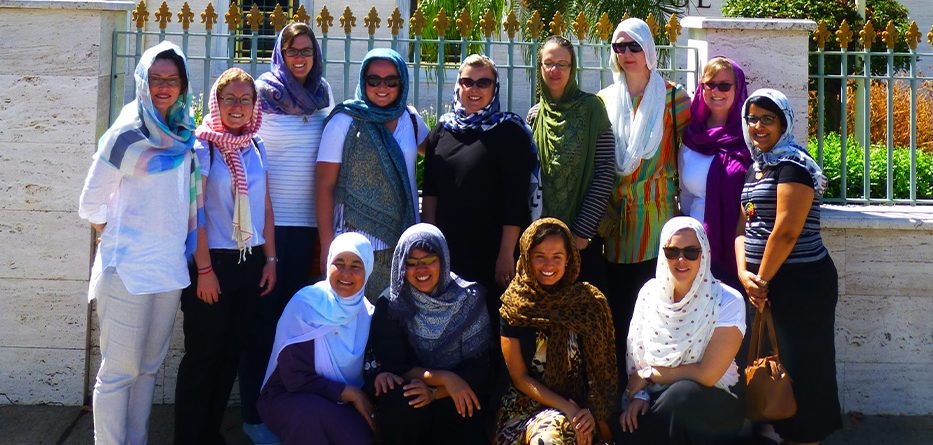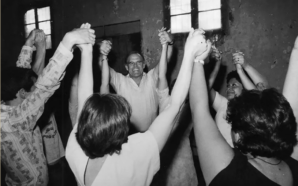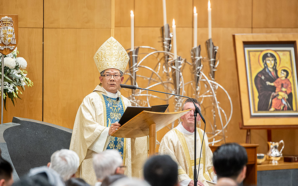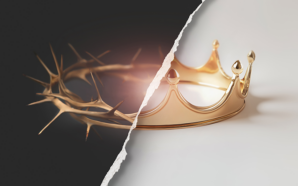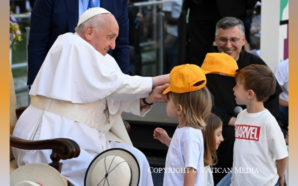Spiritual leadership might look different in other faiths, but it is how we feel that is where we find our common language, Liska Turner told those gathered for afternoon tea to celebrate 10 years since the Office for the Participation of Women commenced its Young Catholic Women’s Interfaith Fellowship.
The celebratory afternoon tea took place at the Mount St Benedict Centre in Pennant Hills on 26 February this year with a number of invited guests and sponsors.
Liska said a visit by the group to the Auburn Gallipoli Mosque had left a lasting impression. “The executive officer of the Muslim Women’s Association spoke passionately and eloquently about living as a covered Muslim woman of faith in today’s climate of anti-Islamic sentiments.”
Along with 13 other women, Liska completed her third residential weekend of lectures and interfaith visits recently. These women now have one residential weekend to complete and a series of online modules before they qualify with a graduate diploma in theology from The Broken Bay Institute. These women are our future leaders in the church.
“Our fellowship journey commenced with a visit from Graeme Mundine, from Aboriginal Catholic Ministry in Sydney,” Liska said. “He spoke to us in some depth about the evolution and history of our Church and our engagement with the Indigenous community. In particular, he focused on the enculturation of Indigenous spirituality into our Catholic traditions.
“Sr Elizabeth Delaney SGS also spoke to us about the Church’s increasing openness to ecumenical dialogue and we’ve been blessed to have first-hand experience of this, visiting both a synagogue and a mosque.”
Fellowship participant Helen Jacobs visited a synagogue during the previous residential weekend. “Looking through the lens of the other, I was instantly moved by the warm welcome offered by the progressive Jewish community at North Shore Temple,” she said.
“I quietly applauded the sense of inclusion and equity created. A male and a female rabbi sitting in a circle with their companions and guests sharing in prayer and afterwards kitsch.”
Vicky Burrows, another fellowship participant, described her Catholic faith as the “lens we look at other faiths through”, for example when visiting the Islamic community. “Our lens grounds us in our tradition and our faith,” Vicky said.
“One of the great things about the residential element is that we have to connect as a community, whether that’s online, over the phone or face to face. For some, we haven’t studied in 20 years; for others, we’ve just come out of university, so the community component is important.”
Christine Pace said that learning about the spectrum and diversity of the Church has encouraged and inspired her because she could see that there were other young Catholic women like her.
For Sally McEniry, discovering the faith traditions of others has assisted her in recognising the complementarity of other traditions while strengthening her commitment and understanding of the Church.
All of the current participants reiterated that since the fellowship was funded by the Australian Catholic Bishops and the religious orders in Australia, the Church values and recognises the contribution of young Catholic women in the Church.
Hosted at the Mount St Benedict Centre at Pennant Hills, both Sr Elizabeth Brennan SGS and Christine Manning continue to warmly welcome the fellowship participants during their residential experiences. “We hope that this special place nourishes their soul and gives them a greater sense of peace, upon leaving,” Sr Elizabeth said.
Originally published on the media blog of the Australian Catholic Bishops Conference at http://mediablog.catholic.org.au/




